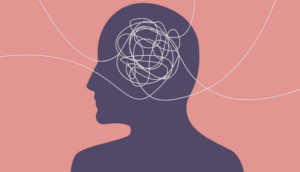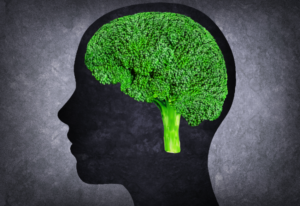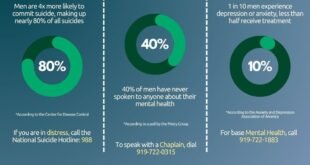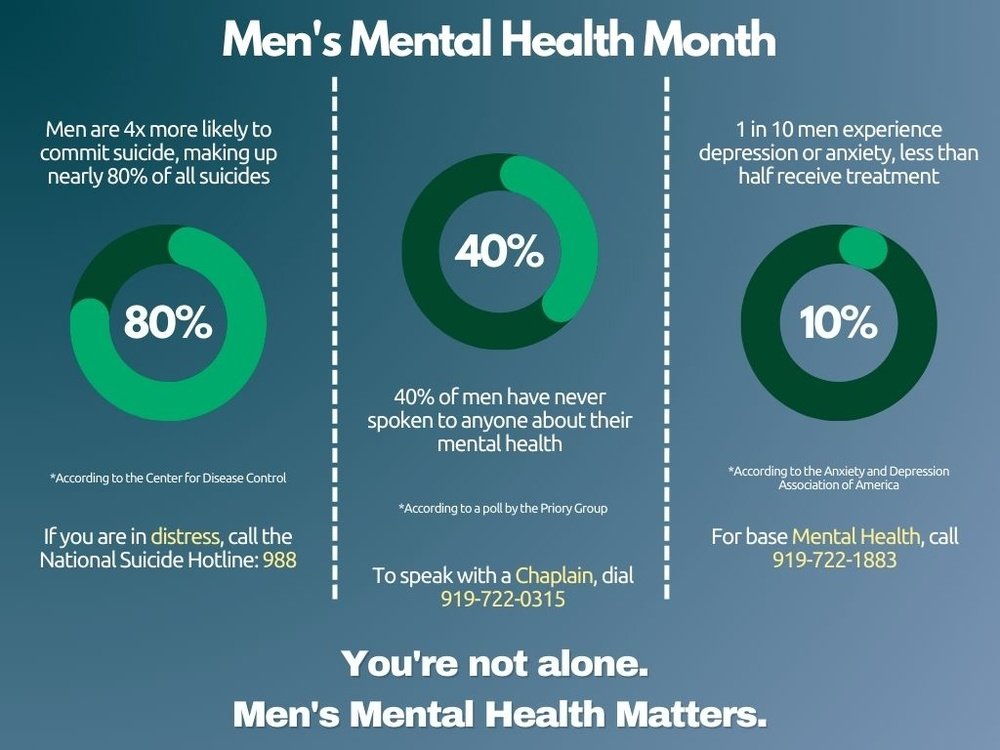Women’s Mental Health Month is celebrated in May every year and aims to raise awareness about the mental health issues commonly experienced by women. This month is an important time to educate and inform women about the many challenges they may face, including hormonal imbalances, postpartum depression, anxiety, and depression, and to remind them that seeking help is a sign of strength. Women’s Mental Health Month promotes the importance of self-care, seeking support, and reducing the stigma surrounding mental illness. It encourages women to prioritize their mental health and emphasizes that they are not alone in their struggles.
Women’s Mental Health Month

Contents
The Significance of Women’s Mental Health Month
May is recognized as Women’s Mental Health Month, a time dedicated to raising awareness and understanding of the mental health challenges that women face. It is an opportunity to highlight the importance of mental health as a vital component of overall well-being and to encourage women to prioritize their mental health.
Understanding Women’s Mental Health Concerns
Women face unique mental health challenges from hormonal changes to pregnancy-related issues, postpartum depression, and menopause. According to the women’s mental health statistics, women are more prone to mental health conditions such as anxiety, depression, and PTSD compared to men. Depression affects women at twice the rate of men, and it is the leading cause of disability among women worldwide.
Why Women’s Mental Health Is Important
Mental health is essential to overall health and women’s ability to thrive, care for themselves, and support their families. When women’s mental health concerns are left unaddressed, they can lead to significant problems such as problems with relationships, work, and self-care. Addressing women’s mental health needs can pave the way for a healthier future that empowers women to be their best selves.
Common Mental Health Disorders Affecting Women
Women’s Mental Health Month is celebrated in May and aims to raise awareness about common mental health disorders affecting women such as anxiety, depression, and eating disorders. It also encourages education, screening, and treatment for women who may be suffering from mental health issues.

Depression And Anxiety Disorders
Depression and anxiety disorders are the most common mental health disorders affecting women. Depression is a persistent feeling of sadness or emptiness that lasts for weeks, months, or even years. Anxiety disorders are characterized by excessive worry, fear, and avoidance behaviors that interfere with daily activities. These disorders often co-occur and share similar symptoms such as poor sleep, fatigue, and difficulty concentrating.
Eating Disorders
Eating disorders are particularly prevalent among young women, but can occur at any age. These disorders include anorexia nervosa, bulimia nervosa, and binge eating disorder. Eating disorders are characterized by unhealthy eating behaviors that can lead to severe physical and mental health problems. Women with eating disorders often have distorted body image perceptions and may engage in extreme dieting or exercise to maintain weight.
Postpartum Depression
Postpartum depression (PPD) is a type of depression that occurs after childbirth. It affects approximately 1 in 7 women and can develop within days, weeks, or months after giving birth. PPD symptoms include sadness, anxiety, irritability, and difficulty bonding with the baby. Women with a personal or family history of depression, stress, or lack of support are at higher risk for developing PPD.
Ptsd In Women
Post-traumatic stress disorder (PTSD) is a severe mental health disorder that can occur after experiencing or witnessing a traumatic event. Women are at higher risk for PTSD than men due to a higher likelihood of experiencing sexual assault, domestic violence, and other traumatic events. PTSD symptoms may include flashbacks, nightmares, avoidance behaviors, and hyperarousal. Treatment for PTSD typically involves therapy, medication, or a combination of both.
Traditionally Stigmatized Mental Health Disorders Common In Women
Women’s Mental Health Month sheds light on traditionally stigmatized mental health disorders commonly experienced by women. These disorders can include anxiety disorders, depression, eating disorders, and post-traumatic stress disorder (PTSD). It is a time to bring awareness to the unique mental health challenges faced by women and work towards destigmatizing mental health disorders.
Borderline Personality Disorder (BPD)
BPD is a mental health disorder characterized by intense mood swings, impulsive behaviors, and unstable relationships. According to the National Institute of Mental Health (NIMH), 75% of those diagnosed with BPD are women. Despite this, women’s mental health services often overlook this disorder, discrediting its debilitating effects.
Bipolar Disorder
Bipolar Disorder affects around 2.8% of the US population. Women with bipolar disorder exhibit more depressive episodes than men, making it more challenging to diagnose. In addition, due to the societal stereotype of women being overly emotional, women’s bipolar disorder symptoms are often dismissed as typical mood swings. Women’s mental health research shows the critical need for mental health professionals to recognize this disorder’s gender-specific symptoms adequately.
Dissociative Disorders
Dissociative Disorders, including dissociative identity disorder and depersonalization disorder, often stem from trauma and childhood abuse. Women with dissociative disorders frequently encounter skepticism and disbelief from mental health professionals, darkening their journey toward recovery. Between 70-90% of people with dissociative identity disorder are women, and one study shows women with dissociative disorders have a higher incidence of suicidal behavior.
Schizophrenia
Schizophrenia is a chronic mental health disorder characterized by delusions, hallucinations, and thought disorders. While it affects men and women equally, women’s mental health with schizophrenia has been stigmatized by the idea of the “crazy woman.” Due to gender bias, schizophrenia is often misdiagnosed in women, leading to incorrect treatment or even worsening symptoms. Mental health professionals must understand the unique symptoms of schizophrenia in women to provide accurate treatment.
Women’s Mental Health And Social Media
May is recognized as Women’s Mental Health Month and it’s important to address the impact of social media on women’s mental health. With the rise of social media use among women, it’s crucial to be aware of the potential negative effects it can have on one’s mental health and to promote a healthy balance between technology use and mental well-being.
Stress Management And Self-care For Women
Managing stress and practicing self-care are crucial for women’s mental health. As we observe Women’s Mental Health Month, it’s important to prioritize mental wellness by engaging in activities like yoga, meditation, journaling, and therapy. Taking care of our mental health should be a regular part of our self-care routine.
The Importance Of Self-care
Women’s mental health is not taken seriously enough, despite the increasing awareness. With women’s mental health services being limited, women need to prioritize and take charge of their own mental well-being. May is observed as Women’s Mental Health Month, and it’s an opportune time to discuss self-care. Self-care should not be perceived as a selfish act. Instead, it is a necessary one. Women need to prioritize themselves just as much as they do for their loved ones. Taking time for oneself can have a positive impact on mental health and reduce stress levels.
Effective Stress Management Techniques For Women
Stressed-out women know that it can consume a lot of time and energy, which could be spent on other important things. Effective stress management techniques are necessary to prevent it from escalating into burnout or chronic illness. Here are some techniques women can use to manage stress and improve their mood:
- Deep breathing exercises can reduce stress levels quickly.
- Engage in physical activity, such as yoga or running, to increase mental clarity and release endorphins.
- Practice mindfulness by meditating for at least 10-15 minutes per day.
- Engage in a creative hobby that relaxes you, like painting, drawing, or playing music.
- Simplify your schedule by saying no to events and tasks that cause you unnecessary stress.
- Seek professional help when needed. Women’s Mental Health Foundation provides a list of anxiety, mood disorder, and depression services.
Supporting Women’s Mental Health
May is Women’s Mental Health Month, a time to raise awareness about women’s unique mental health needs and advocate for their well-being. It’s important to prioritize mental health and provide support for women who may face challenges and stigma surrounding their mental health.
The Role of Family And Friends
Supporting women’s mental health is a crucial aspect of mental health care. Women often face unique challenges that can lead to mental health issues, including hormonal changes, work-family balance, and childcare. Family and friends play a crucial role in supporting women’s mental health by offering emotional support and encouraging women to seek help when necessary.
Mental Health Care Resources For Women
There are plenty of mental health care resources available to help women deal with mental health issues. Women can seek help from mental health professionals, including psychotherapists, psychologists, and psychiatrists. They can also find support from support groups and online forums. Several non-profit organizations offer mental health care resources for women, including the National Alliance on Mental Illness (NAMI) and the Substance Abuse and Mental Health Services Administration (SAMHSA).
Breaking The Stigma of Women Seeking Mental Health Treatment
Breaking the stigma surrounding women seeking mental health treatment is a crucial aspect of Women’s Mental Health Month. Encouraging women to prioritize their mental health and seek professional help when needed can create more awareness and a supportive community.

Overcoming Common Barriers To Treatment
There are many reasons why women find it difficult to seek mental health treatment. Some common barriers include stigma, lack of access to resources, social and economic factors, and negative attitudes towards mental health conditions. It is essential to face these barriers and create an encouraging environment that advocates for mental health treatment. Addressing these barriers head-on can help women overcome their concerns about treatment and access the support they need.
Affordable Mental Health Care Options
Access to affordable mental health care is crucial for those seeking treatment, but can often be a barrier. Fortunately, there are various affordable mental health care options available for women. There are non-profit organizations, community health centers, and government-sponsored clinics that offer support and treatment options for those who cannot afford private care. There may also be online counseling options that offer affordable, remote mental health services.
Frequently Asked Questions For Women’s Mental Health Month
Which month is Women’s Mental Health Month?
May is recognized as Women’s Mental Health Month.
Is May or October mental health month?
May is Mental Health Awareness Month.
What is women’s health month?
National Women’s Health Awareness Month is recognized in May, where women’s unique health challenges are addressed and brought to attention, emphasizing preventive care and overall health and well-being.
Conclusion
As Women’s Mental Health Month comes to a close, it’s important to remember that the conversation about mental health must continue year-round. By raising awareness and reducing stigma, we can create a more supportive and understanding environment for women struggling with mental health issues. Remember to prioritize your mental health and encourage the women in your life to do the same.
 Health Pro Techs Top Health Products Review
Health Pro Techs Top Health Products Review






